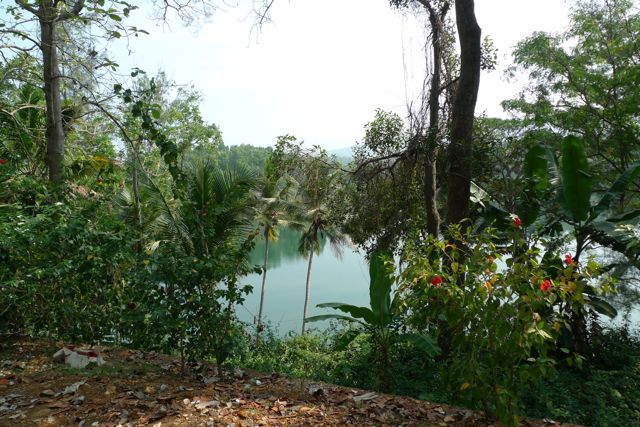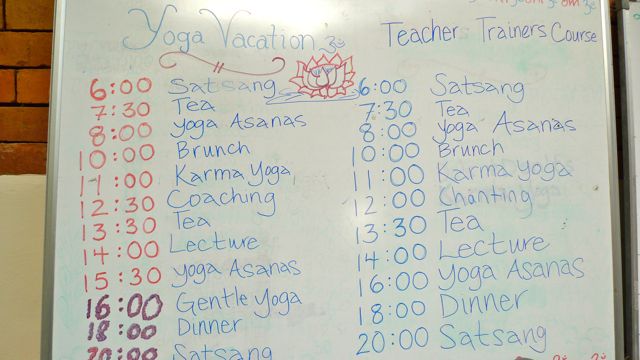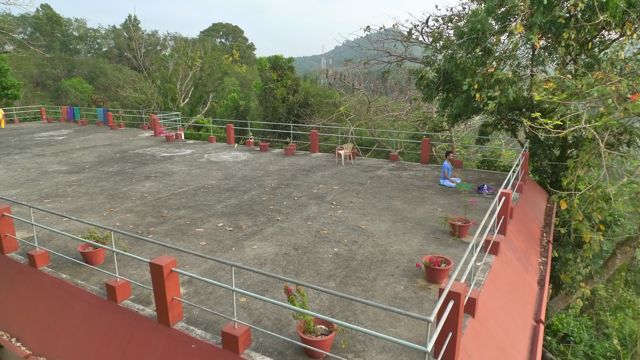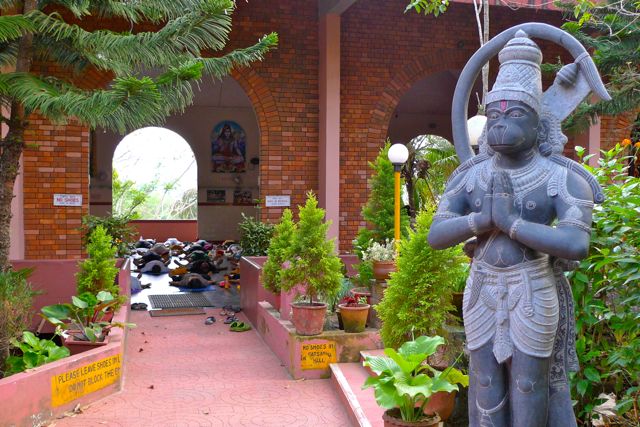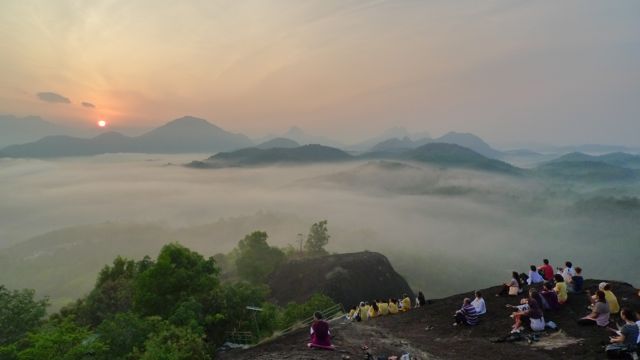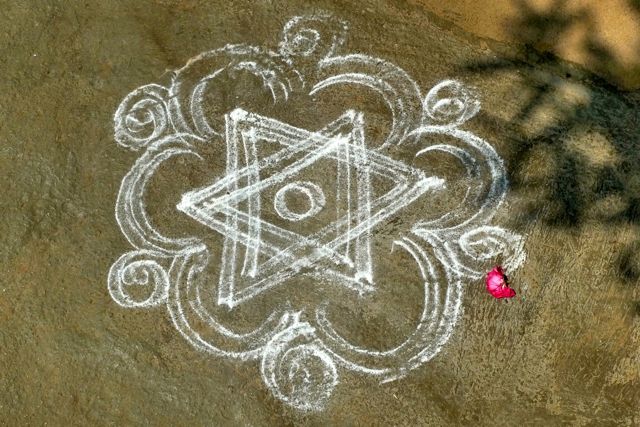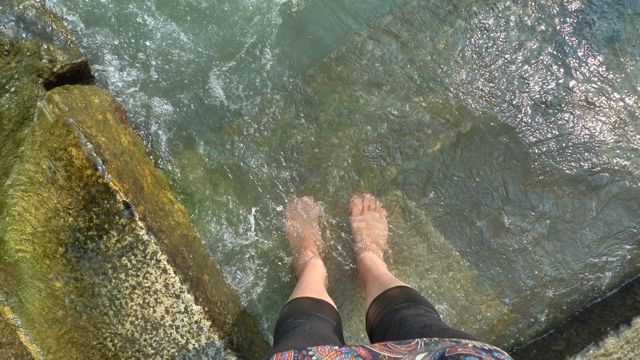I wanted to take my dog for a walk. I spent the whole day inside finishing an assignment, and I desperately needed to stretch my body.
“I’ll go with you,” The Husband said. “It’s dark.”
“No, no. I’m fine. I’m wearing white clothes so cars can see me.”
“Let me go with you,” he said.
“No, no. The moon is full.”
“Let me go with you.”
And so I did.
Palm Springs is always quiet, but once you get off the main street, our neighborhood is particularly still. That’s why the man was immediately out of place.
The Husband and I were on the outskirts of a park. The man was across the street, crouched on the ground, outside of a low brick wall. He hammered something. The metal-on-metal sound was almost like a lighter that had run out of fuel — “flick, flick, flick” — but deeper, heavier, more resonance.
The Husband and I both craned our necks to get a better look at the guy. And that’s when he turned and looked back at us. Terror ricocheted through my body. Suddenly it was difficult to breathe.
“WALK,” said The Husband in a voice I’ve never heard before.
Everything in my body told me to not run. It would make the man mad. I forced my feet to maintain a normal pace.
“I told you to WALK,” The Husband said. “GO.”
The nearest car headlights were at least a mile away. Only one house had a light on, but that was two blocks away. My dog has such short legs.
The man was behind us.
“Hey,” he yelled. And we kept walking.
Palm Springs is incredibly dark at night. It’s so people can see the stars. It’s something I’ve loved ever since I moved to the desert — the darkness here is so much more complete and sincere than nights in the Midwest.
“I said HEY.”
I cursed myself for wearing white. In darker clothes, maybe I could have slipped into the park. It would have been easy. But with the stupid moon grinning down on me, reflecting my T-shirt like a Crest smile, there was no way.
“Do you know where Ramon. I mean, Raymond Cree,” the man said. He didn’t speak in complete sentences. None of his words made sense, but they had the tone of a threat. “Tell me Vista Chino.”
“No,” The Husband said. We continued walking.
My body had a visceral reaction to the man, who was now an arm’s length behind us. My heart trembled on the outside layer of my skin. Heat rolled through my body like lava. A very clear voice inside said, “Walk normal. Keep steady. Stand tall.”
I understood that no matter what happened, I was ready to accept it. I turned around to face the man.
“That way,” I said and pointed in the opposite direction. “Go the other way.”
We didn’t see the man go. We just looked behind us, and he was no longer there. At that point we quickened our step. We expected the man to reappear at any moment. But then he didn’t, and we were home.
“I’m sorry I yelled,” said The Husband. “Do you think I overreacted?”
“No,” I said. “Not at all.”


